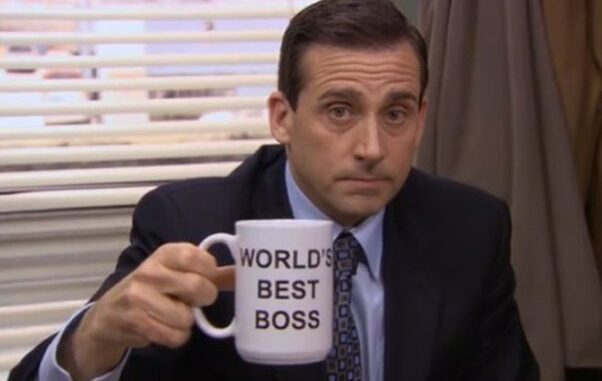
The Office Would Never Be the Same Without Michael Scott
In the realm of television, there are characters who define a show, becoming its beating heart, its chaotic energy, or its moral compass. For NBC’s mockumentary sitcom, The Office, that character was unequivocally Michael Gary Scott. The regional manager of Dunder Mifflin Scranton, Michael was a walking paradox: a bumbling idiot savant of paper sales, a desperately lonely man who craved connection above all else, and an utterly inappropriate boss whose misguided attempts at leadership often led to both disaster and surprising moments of warmth. To suggest The Office would merely be "different" without him is an understatement; it simply would never have been the same, losing its gravitational center, its unique brand of humor, and its unexpected emotional depth.
Firstly, Michael Scott was the indispensable engine of The Office's signature cringe comedy. Much of the show’s humor stemmed from his profound lack of self-awareness, his desperate need to be loved, and his utterly inappropriate attempts at being a “cool boss.” From his excruciating "Diversity Day" seminar, where he mimicked various accents and stereotypes, to his disastrous revelation to his "Scott's Tots" about not being able to fund their college tuition, Michael provided an endless supply of second-hand embarrassment that was simultaneously hilarious and deeply uncomfortable. His off-key rendition of "Goodbye Stranger," his ill-conceived attempts at stand-up comedy, or his insistence on elaborate, often ruined, office parties – these were not just isolated incidents; they were the very fabric of the show's early seasons. Without Michael’s unparalleled ability to create awkward situations and then dig himself deeper into them, the show would lack its most reliable and distinctive comedic wellspring.
Beyond the laughter, Michael was the primary catalyst for the show’s plotlines and character development. His impulsive decisions, bizarre initiatives, and tumultuous personal life constantly threw the Dunder Mifflin Scranton branch into disarray, forcing the other characters to react, adapt, or simply endure. The "Michael Scott Paper Company" arc, for instance, a direct result of his dramatic departure, not only showcased his surprising entrepreneurial spirit but also highlighted the loyalty (and exasperation) of Pam and Ryan, and the inherent absurdity of the paper industry. His various relationships, from the volatile Jan Levinson to the perfectly matched Holly Flax, provided rich narrative arcs that explored themes of love, loneliness, and the pursuit of happiness. Michael wasn't just a character within the narrative; he was the narrative's primary driver, a force of nature around whom all other events orbited.
Perhaps most critically, Michael Scott anchored the show’s unexpected emotional core. Beneath the layers of cringe and the facade of the buffoon lay a deeply human character driven by a profound desire for connection and a longing for family. While his methods were often misguided, his affection for his employees was often genuine. His quiet pride at Pam’s art show, his heartfelt goodbyes to each person before moving to Colorado with Holly, or his touching final moment with Jim – "Best Boss" – revealed a man capable of growth, empathy, and surprising wisdom. He wanted the office to be his family, and in many ways, it was. His journey from an emotionally stunted, insecure man to one who finds true love and a sense of belonging gave the show a poignant depth that elevated it beyond mere situational comedy. He embodied the theme that even in the mundane absurdity of office life, one could find meaning, connection, and even love.
Moreover, Michael's presence shaped the identities and reactions of every other character. Jim and Pam’s exasperated glances, Dwight’s unwavering (if misguided) loyalty, Stanley’s perpetual disdain, Oscar’s intellectual snobbery – these reactions were not just character traits; they were responses to Michael. He was the sun around which their comedic and dramatic planets orbited. Without his relentless, often bewildering, energy to react to, the dynamic between these characters would be fundamentally altered, losing a crucial element that defined their relationships and individual personalities.
When Steve Carell departed The Office in its seventh season, the show attempted to fill the void with new managers and shifting dynamics. While it still produced moments of humor and heart, the fundamental energy irrevocably changed. The specific brand of uncomfortable humor softened, the central conflict generator was absent, and the emotional core, while still present in the remaining characters, lost its most chaotic and compelling anchor. The Office without Michael Scott was still good television, but it was no longer the same Office. It was a show learning to walk without its most crucial limb, a testament to the fact that Michael Scott was not merely a manager of a paper company, but the irreplaceable heart and soul of one of television’s most beloved comedies.
@scottstoots_ “Best Boss i ever had.” #michaelscott #jimhalpert #theoffice #theofficeus #nostalgia #foryou #fyp